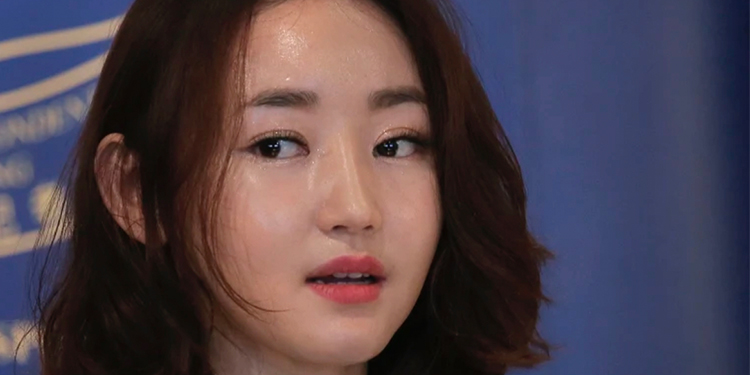Earning the trust of your subjects is never easy for a documentarian, especially when they believe you might want to harm them. This was the challenge faced by American director Madeleine Gavin, whose film “Beyond Utopia” chronicles the stories of North Korean defectors on their escape.
The film, premiering in the United States on Monday after being selected at the Sundance Film Festival in January, follows the work of a pastor who defected to South Korea and now assists families in fleeing Kim Jong Un’s communist regime.
Among them were the Roh family and their elderly grandmother, whom Gavin met just weeks after they escaped their repressive and isolated homeland, indoctrinated for years by propaganda.
“I will never forget the way she looked at me,” said Gavin to AFP. At that time, “Americans only existed to make North Koreans miserable, to kill them, and to attack them. We weren’t even human beings; that’s what they had been taught.”
Shortly after the Roh family sneaked through the heavily guarded border into China, a local farmer connected them with an “underground railroad” for defectors, operated by Pastor Kim Sung-eun, whom Gavin was filming. The pastor arranged a secretive journey for the family through China, Vietnam, and Laos, all under communist rule, navigating police checkpoints and border crossings through the jungle.
The film incorporates footage shot in China by the pastor’s “agents” before Gavin could locate and film them in person in Southeast Asia. Initially, Gavin felt “strong feelings of distrust and suspicion” from the family. However, despite the intense brainwashing they endured in North Korea, even the 80-year-old grandmother’s attitude began to change rapidly as she saw the outside world with her own eyes.
“She didn’t like it at all… They had always been told that, compared to the rest of the world, North Koreans were the luckiest people on earth,” explained Gavin. “And to see a world where there are animals, life, and even toilets! We were a piece of that puzzle.”
When Gavin began shooting her film, she focused on North Koreans who had been living in South Korea for many years. Upon arrival, many defectors attend a “resettlement center,” where they learn about the rest of the world, the lies of Kim Jong Un’s brutal regime, and basic modern practices like using an ATM.
However, after meeting Pastor Kim Sung-eun, involved in the clandestine network guiding fugitives to the South, Gavin restructured the film to chronicle the journeys of two families fleeing North Korea.
The documentary follows Soyeon Lee, a mother who escaped North Korea long ago but is now trying to clandestinely bring her son, whom she had to leave behind, to safety. The tragedy intensifies when he is captured in China and returned to North Korea for punishment. Capturing the mother’s anguish “was really the most difficult,” says Gavin. “What she has gone through and continues to endure is the worst thing anyone can experience.”
The other part of the film follows the Roh family on their harrowing 5,000-kilometer journey by land to Thailand and towards freedom. A single misstep could result in their repatriation to North Korea, giving the documentary a suspenseful tension akin to Hollywood thrillers.
However, Gavin also aimed to create something “experiential and in real time,” giving “voice to real North Koreans,” whose country is known worldwide mainly for its nuclear arsenal and terrifying policies. Even in their escape, the Roh family expresses a complex mix of emotions, from awe and excitement to anger for what they’ve been deprived of for so long to shame.
The grandmother “never let go of the idea that Kim Jong Un was an amazing person who had one of the hardest jobs,” says Gavin. “She felt tremendous guilt for leaving, and that anyone who leaves the country is basically abandoning him, and how heartbreaking that is for him.”
The film includes secretly shot footage in North Korea smuggled out by the pastor’s network, showing everything from the country’s barbaric gulags to the harshness of daily life.
“As the grandmother says at the end of the film, ‘We are very lucky, but I can’t sleep thinking about the people still there,'” explains Gavin. “And that’s why I wanted to leave the film as a memory for those people. Because those people are there, and they need us to bring their voices forward.”










